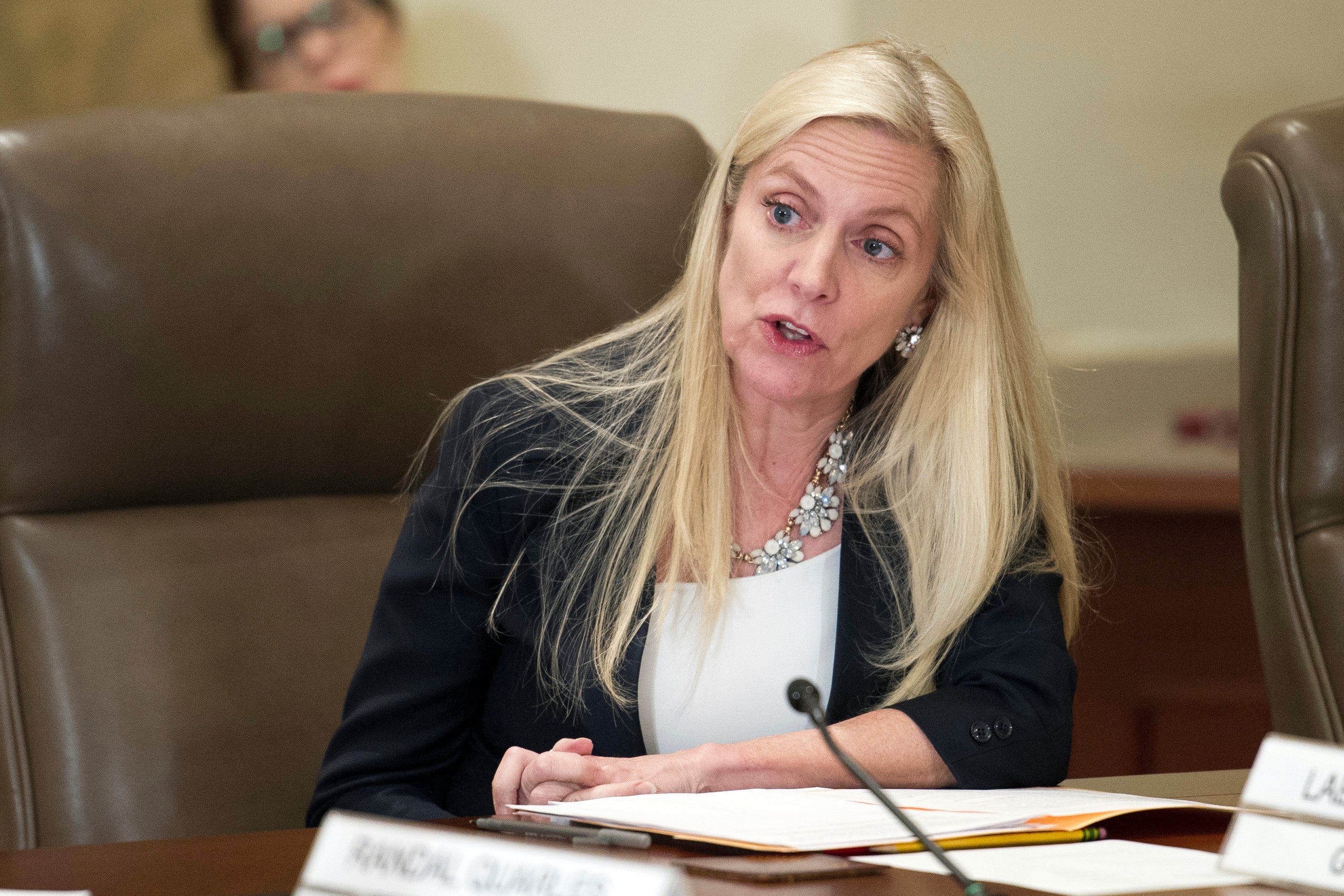Brainard wins Senate confirmation to be Fed's vice chair
The Senate confirmed the nomination of Lael Brainard to a four-year term as vice chair of the Federal Reserve, elevating her to the Fed’s No. 2 post in the midst of the central bank’s toughest fight against inflation in four decades

Your support helps us to tell the story
From reproductive rights to climate change to Big Tech, The Independent is on the ground when the story is developing. Whether it's investigating the financials of Elon Musk's pro-Trump PAC or producing our latest documentary, 'The A Word', which shines a light on the American women fighting for reproductive rights, we know how important it is to parse out the facts from the messaging.
At such a critical moment in US history, we need reporters on the ground. Your donation allows us to keep sending journalists to speak to both sides of the story.
The Independent is trusted by Americans across the entire political spectrum. And unlike many other quality news outlets, we choose not to lock Americans out of our reporting and analysis with paywalls. We believe quality journalism should be available to everyone, paid for by those who can afford it.
Your support makes all the difference.The Senate on Tuesday confirmed the nomination of Lael Brainard to a four-year term as vice chair of the Federal Reserve, elevating her to the Fed's No. 2 post in the midst of the central bank's toughest fight against inflation in four decades.
Her confirmation came in a 52-43 vote in the Senate. President Joe Biden had nominated Brainard in November.
Brainard, 60, has been a member of the Fed's Board of Governors since 2014, and her rise to a leading policymaking role follows an extensive career as an economic official during previous Democratic administrations. She was an adviser to President Bill Clinton in the late 1990s before becoming the top Treasury official for international affairs during President Barack Obama's administration, from 2009 to 2013.
Brainard's confirmation comes as three other nominees for positions on the Fed's board await confirmation. They include President Joe Biden's nomination of Jerome Powell for a second four-year term as Fed chair. Powell has been serving in a temporary capacity since his first term expired in early February. He enjoys broad bipartisan support and could win Senate confirmation later this week.
Many economists think the Fed will raise its benchmark short-term interest rate by a sharp half-percentage point at each of its next three meetings, in May, June and July, to try to rein in accelerating price increases.
Such rate hikes would be larger than the Fed's typical quarter-point increases and would likely lead to higher borrowing costs for home mortgages, auto loans and credit cards. Those higher costs could, in turn, slow consumer spending and and weaken the overall economy.
The financial markets expect the Fed to keep raising rates to a range of 2.5% to 2.75% by the end of this year. That would represent a drastic increase from its current level of 0.25% to 0.5%.
Brainard, the lone Democrat on the board for now, has generally supported keeping interest rates low to support growth and hiring, which makes her a “dove” in Fed parlance. She was an architect of a Fed policy framework, adopted in August 2020, under which it said it would no longer raise rates solely because the unemployment rate had fallen to a low level that could spur inflation. Instead, the Fed said it would await actual evidence that prices are accelerating.
That framework has been blamed by some critics for contributing to the Fed’s delay in raising rates as high inflation erupted last year — an assertion disputed by Powell.
Brainard has also said the Fed could more directly take account of climate change in bank supervision, a stance that has drawn opposition from many Senate Republicans.